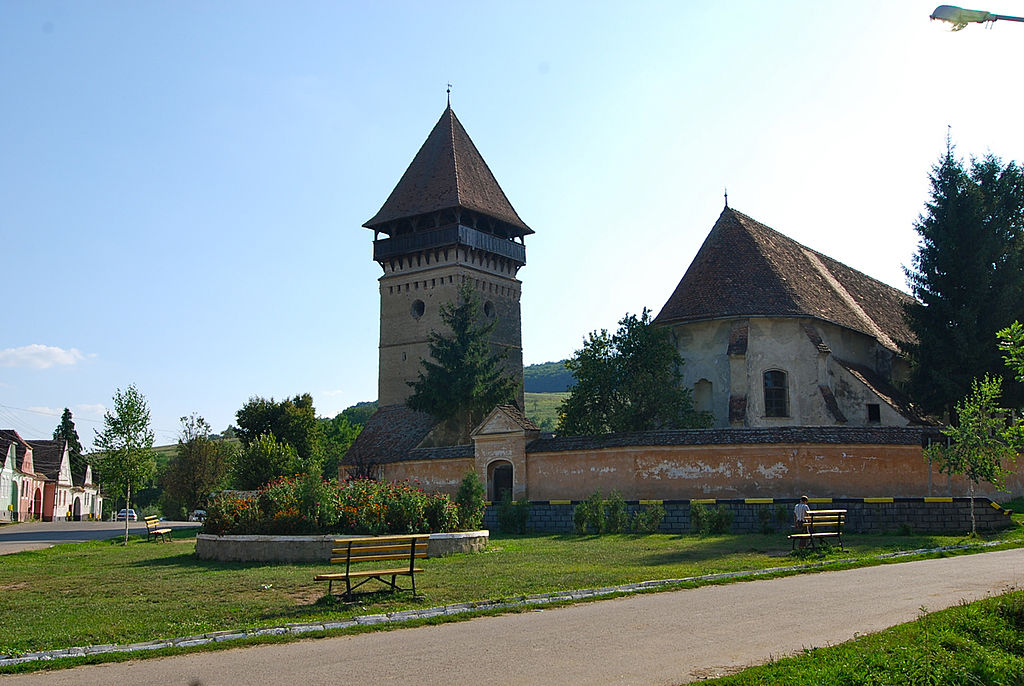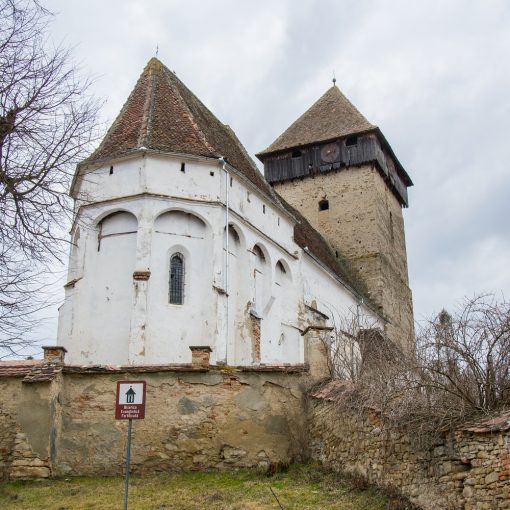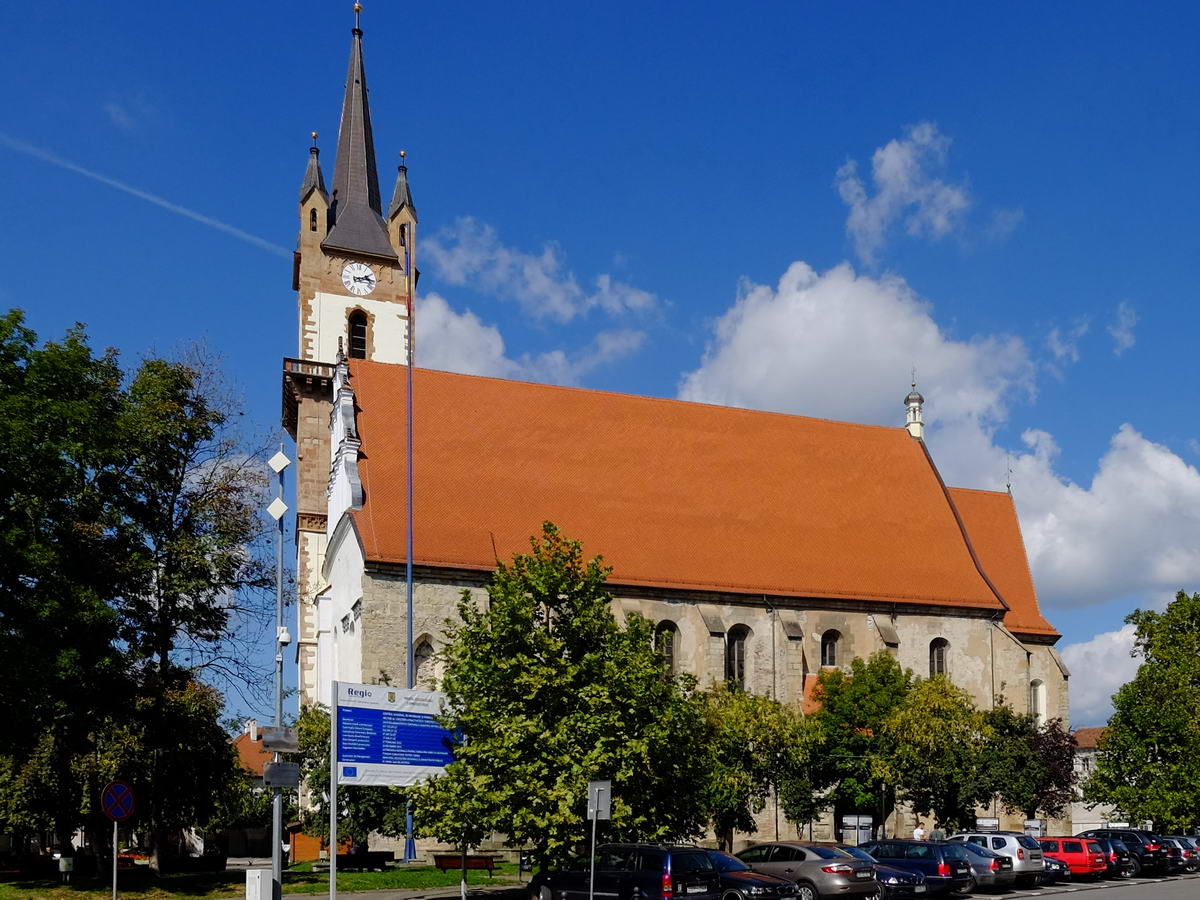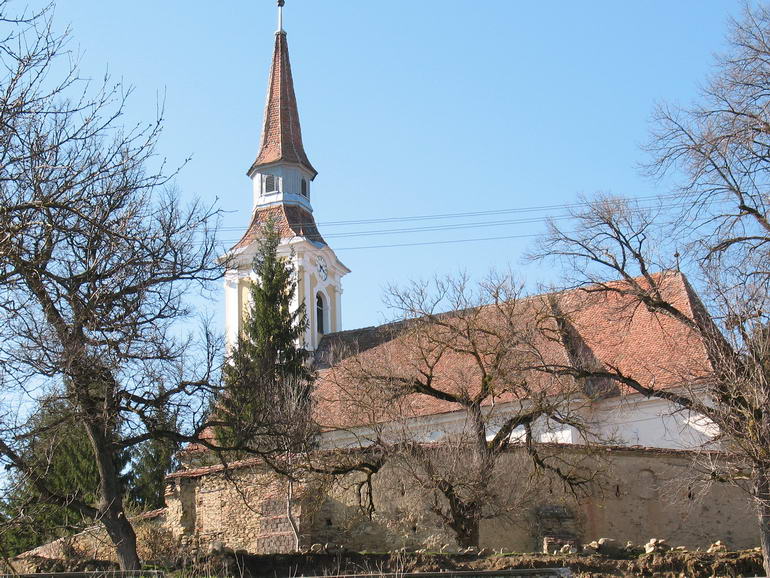
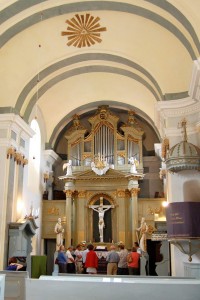 The neo-classical hall church with chancel and western bell tower was built between 1810 and 1813, after the collapse of the initial construction, first mentioned in documents from 1270. But there is no information concerning the aspect of this former church. It is, though, supposed to have been represented in a drawing on one of the church’s pews, dated 1793. The interior hosts the altar with organ gallery, the pulpit and the font, which were made partially at the same time with the construction itself, but also in 1822.
The neo-classical hall church with chancel and western bell tower was built between 1810 and 1813, after the collapse of the initial construction, first mentioned in documents from 1270. But there is no information concerning the aspect of this former church. It is, though, supposed to have been represented in a drawing on one of the church’s pews, dated 1793. The interior hosts the altar with organ gallery, the pulpit and the font, which were made partially at the same time with the construction itself, but also in 1822.
Only the ring wall and four defensive towers are still preserved from the 15th century fortification system, while the fifth tower collapsed in 1925 and was never rebuilt. On the southern side, next to the former kennel, only the ruins of the old Saxon school still exist today.
Place and surroundings
The fortified church in the village of Criţ, where more than 400 years ago the first village school law in Transylvania was enacted, lies on a hill in the middle of the place. In the past this location demanded a castle guardian who was a cobbler or at least a skilled craftsman. The steep ascent to the church is arduous and paved with round cobblestones. Many women, on their way to Sunday service, broke their footwear, which were heeled with horseshoes. A cobbler was therefore needed for urgent repairs before entering the church.
The church and the mostly preserved historic village are surrounded by an idyllic hilly landscape, ideal for walks to neighboring villages and fortifications. Tourist accommodation is available in several lovely restored farmhouses.
Activities
- 2010-2014 EU-financed restoration project on the fortified church
Contact:
Ev.Parish Rupea
Tel.:+40/268/260 378


